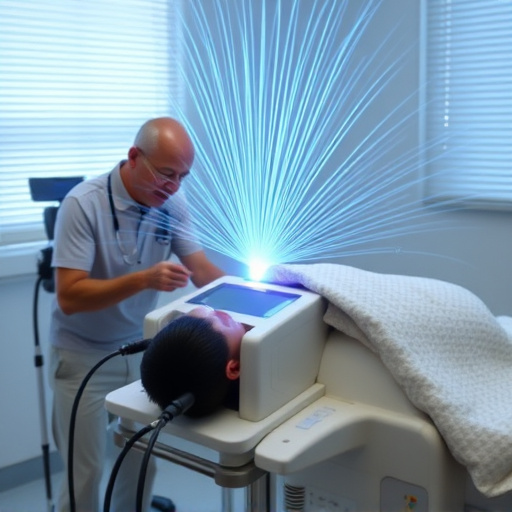Workers compensation doctors play a vital role in evaluating and settling work-related injury claims. They assess disabilities, provide insights into long-term implications like chronic pain treatment, and consider psychological impacts on return-to-work ability. Their detailed reports guide insurance adjusters and legal teams, ensuring tailored post-injury care and fair settlement offers for injured workers.
A worker’s journey towards fair compensation after an injury on the job often hinges on the expertise of a Workers Compensation Doctor. This specialized medical professional plays a pivotal role in evaluating claims, providing critical insights that shape settlement offers. Understanding how their diagnosis and assessment influence negotiations is essential for both claimants and insurance carriers. Explore these dynamics to gain a comprehensive view of the impact a Workers Compensation Doctor has on the entire claims process.
- Role of Medical Expertise in Claims Evaluation
- Impact on Settlement Negotiations: A Doctor's Perspective
- Understanding Diagnostic Insights for Fair Compensation
Role of Medical Expertise in Claims Evaluation

The role of a workers compensation doctor goes far beyond simply diagnosing work-related injuries. Their medical expertise is instrumental in evaluating and settling claims accurately and fairly. These specialists play a pivotal role in understanding the extent of an injured worker’s disabilities, which directly influences settlement offers. By thoroughly assessing symptoms, conducting thorough examinations, and often ordering specialized tests, these doctors provide critical insights into the long-term implications of work-related injuries, such as herniated disc treatment or chronic neck pain treatment.
This evaluation process involves a nuanced understanding of both the physical limitations caused by the injury and the psychological impacts that can significantly affect an individual’s ability to return to work. The doctors’ detailed reports and recommendations guide insurance adjusters and legal teams, ensuring that post-injury care is tailored to meet the unique needs of each claimant, ultimately shaping the settlement offers made to them.
Impact on Settlement Negotiations: A Doctor's Perspective

When it comes to workers compensation cases, the role of a doctor, specifically a workers compensation doctor, is pivotal in shaping settlement offers. These medical professionals provide crucial assessments and reports that directly influence the understanding of an injured worker’s condition and its impact on their ability to work. From the perspective of these doctors, settlement negotiations can be complex due to the multifaceted nature of occupational injuries, especially musculoskeletal ones like neck pain.
Doctors must consider not just the immediate effects of an injury but also the potential for long-term disabilities or the need for ongoing post-injury care. Their expertise is essential in translating medical findings into compensatory values that reflect the severity and duration of the worker’s impairment. This nuanced approach ensures a more equitable settlement, considering both the physical toll and financial implications of the injury on the claimant’s life, including the cost of neck pain treatment and other relevant aspects of post-injury care.
Understanding Diagnostic Insights for Fair Compensation

Understanding Diagnostic Insights for Fair Compensation
A workers compensation doctor plays a pivotal role in determining settlement offers by providing critical diagnostic insights. Their expertise lies in assessing work-related injuries and illnesses, which often requires a deep understanding of complex medical conditions. By carefully evaluating symptoms, conducting thorough examinations, and ordering necessary tests, these doctors offer invaluable information about the extent and nature of an injury. This includes identifying conditions like sciatica, where relief and treatment plans can vary significantly based on professional diagnosis.
Their personalized treatment recommendations not only guide recovery but also influence settlement negotiations. Insurers often rely on these doctors’ reports to assess the reasonableness of compensation claims. Accurate diagnoses and well-documented medical histories empower both claimants and insurance companies to reach fair settlements, ensuring that injured workers receive appropriate sciatica treatment and support during their recovery journey.
A workers compensation doctor plays a pivotal role in claims evaluation and settlement negotiations. Their medical expertise provides critical insights into an injured worker’s condition, enabling fair compensation determinations. By understanding the diagnostic aspects and their impact on settlement offers, both parties can navigate the process more effectively, ultimately leading to more satisfactory outcomes for all involved.














